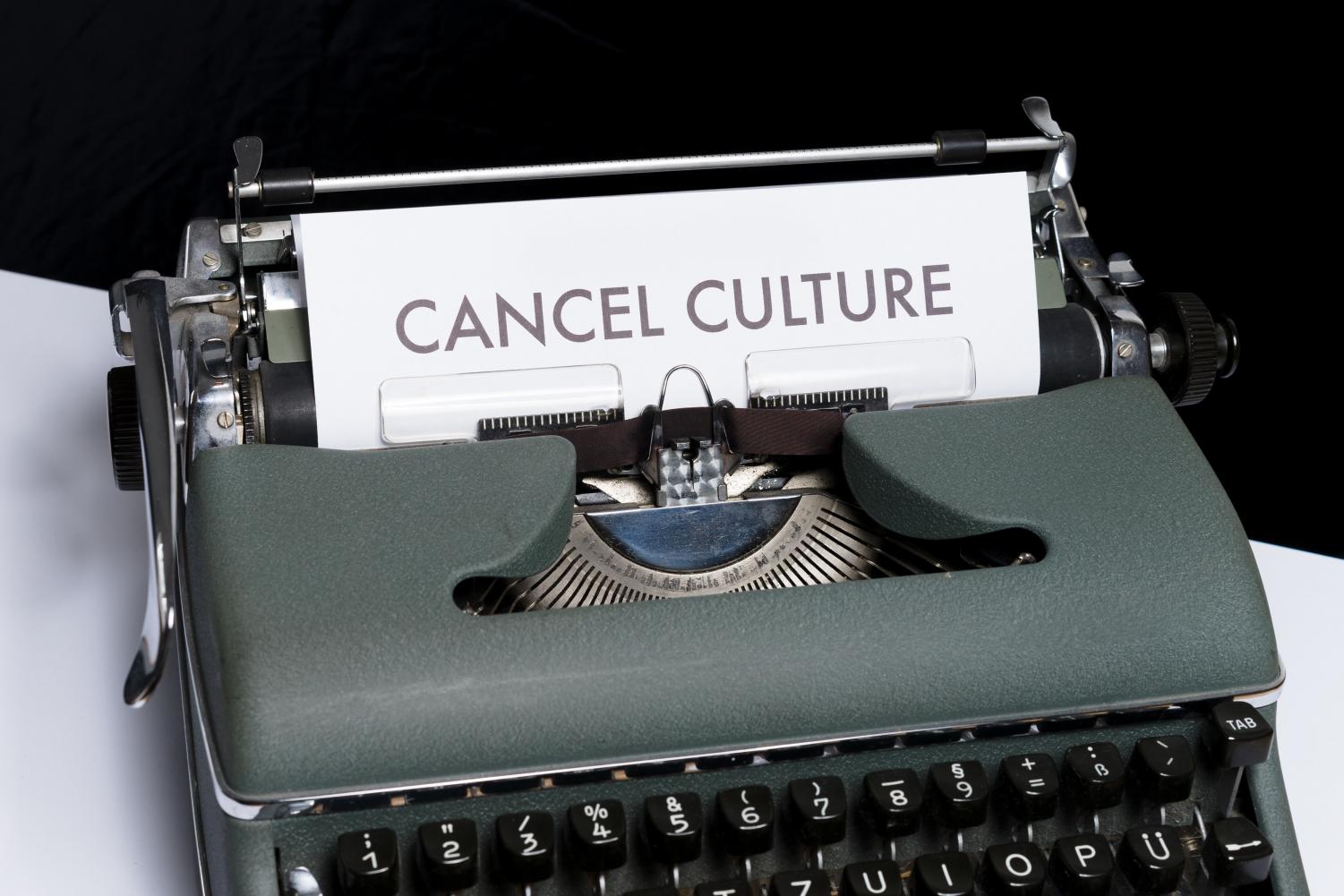The debate regarding cancel culture has taken center stage in today’s political and social discourse. In his opening speech at the Republican National Convention this fall, Sen. Tim Scott of South Carolina posed a question: “Do we want a society that breeds success, or a culture that cancels everything it even slightly disagrees with?” To understand if we truly live in this type of society, we must examine what cancel culture really is.
WHERE IT CAME FROM
Cancel culture, formerly known as “call-out” culture, originated on Twitter. It began as individuals used the platform to call for someone, often a celebrity, to be canceled for an offensive statement or action. However, it has evolved to become a virtual courtroom, with Twitter users as both judge and jury.
Nicole Holliday, a linguistics professor at the University of Pennsylvania, told NPR that cancel culture, in its simplest form, is akin to a boycott where people decide to not support a person or organization based on their incompatible beliefs. Jill McCorkel, a professor of sociology and criminology at Villanova University, described a slightly harsher view to the New York Post, claiming that cancel culture is a contemporary form of banishment used to “reinforce the set of norms.”
Although problematic, cancel culture is not without its own merits. At its best, it is a strategy for holding people accountable when they have avoided consequences for their actions. The #MeToo movement is a prime example of the cancel culture courtroom bringing justice when other systems have failed. In reality, cancel culture is neither without blame nor the devil many paint it to be.
CANCEL CULTURE IS NOT ONE-SIDED
We often see cancel culture being promoted as a liberal intimidation tactic. While conservatives are sometimes the loudest critics of “cancel culture,” they remain active participants under a different guise. Instead of canceling someone for being racist or homophobic, conservatives often cancel celebrities for disrespecting America or being “un-American.”
Last November, Ben Shaprio and Candace Owens, two popular conservative personalities, likened a photo shoot that featured Harry Styles wearing a dress to a coordinated attack on masculinity as a part of a supposed Marxist agenda in schools. Their expressed goal was not canceling Styles, but they did intentionally garner outrage to push their own agenda regarding gender.
Perhaps the clearest example is from 2017, when Colin Kaepernick kneeled during the National Anthem to protest against police brutality. He decided to kneel instead of sit to show deference and respect, but his actions were misconstrued as a sign of disrespect against the flag and the military. There was immediate public outrage which included then-president Donald Trump encouraging NFL owners to fire Kaepernick, calling him an expletive. If that is not cancel culture, then nothing is.
CRITICISMS OF CANCEL CULTURE AND A BIBLICAL RESPONSE
Cancel culture is not an organized movement, rather it is a mob composed of uncontrollable users. In this environment, there is no objective or agreed-upon truth. This can result in people being “canceled” based on a difference of opinion or slightly problematic remarks and ideologies. Public cancellations have a significant impact on the affected party. In many cases, the damage can be irreparable as people lose both their livelihood and reputation.
From a guilty presumption, cancel culture often escalates to move beyond what is fair. This escalation is shown when accusations regarding somebody’s actions evolve into an accusation about their character. This mindset can be observed in the recent conflict regarding Gina Carano, a cast member on the Mandalorian who was terminated by Disney for problematic social media posts. Her controversial Instagram post was misconstrued to be taken as anti-semetic by several media outlets. While her comments were highly insensitive and inappropriate, classifying them as anti-semetic was a misrepresentation of Carano’s intent.
A majority of the people who participate in cancel culture would view their actions as an enactment of justice. While holding people accountable is not bad in itself, many aspects of cancel culture do not reflect Christian values. As Christians, we are called to a higher standard of love, and our criticism must come from a place of love. Our ability to love one another is dramatically undermined if we use their mistakes as weapons against their character, especially within such a public forum.
Being “canceled” also denies an individual the opportunity of forgiveness or character development. Old tweets are often the main fodder for the cancel culture crowd, and apologies are often dismissed as being insincere. For some people, past racist or homophobic tweets may be indicative of their current beliefs, and an apology does not guarantee an actual change of heart.
However, we must recognize that nobody is too deep in sin to be saved by God. As sinners ourselves, it is not our place to deliver the final judgement onto others. Instead, we are called to “be kind to one another, tenderhearted, forgiving one another, as God in Christ forgave you” (Ephesians 4:32).











